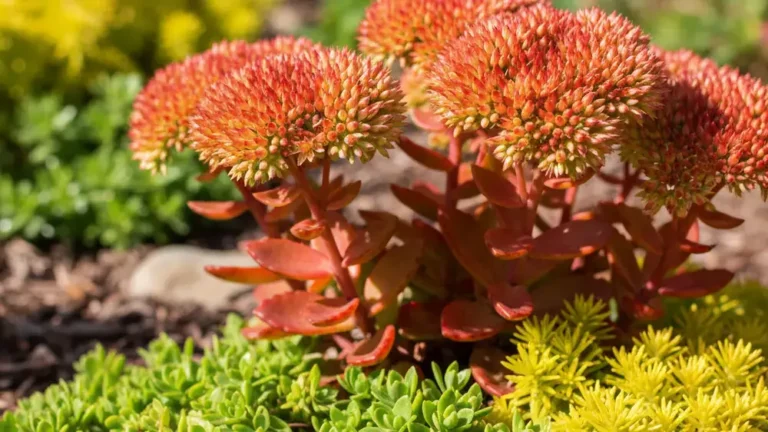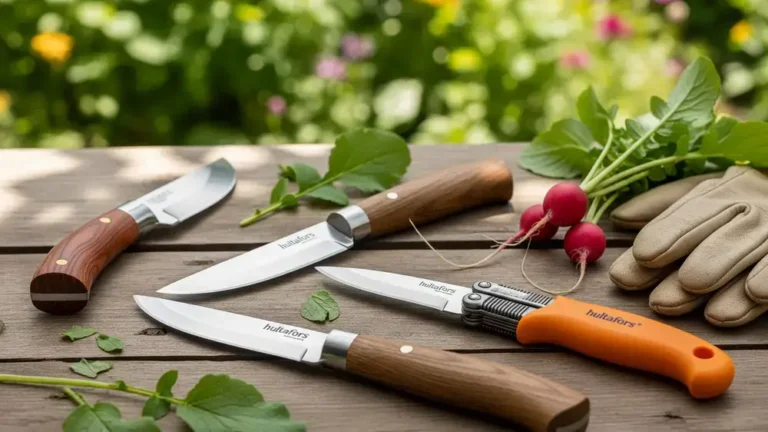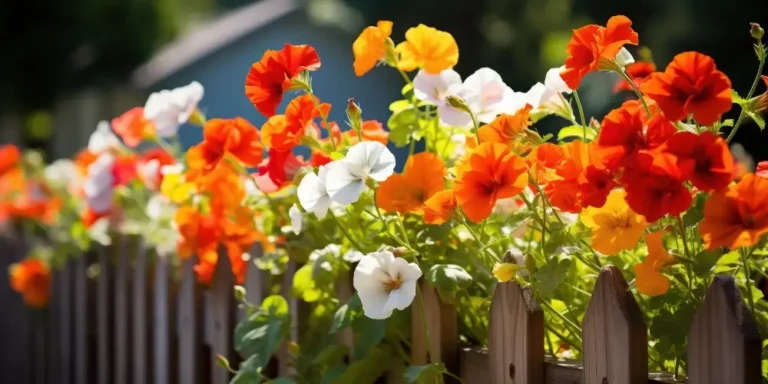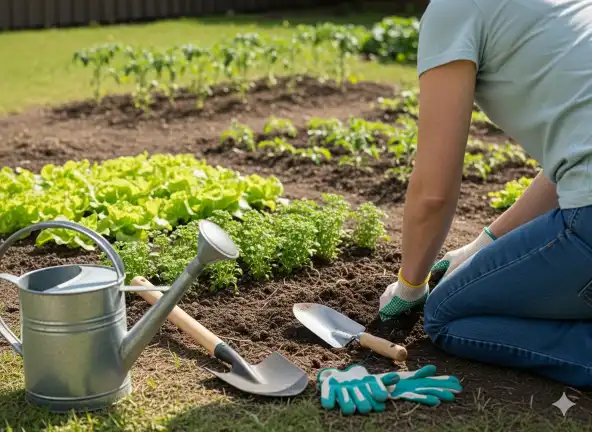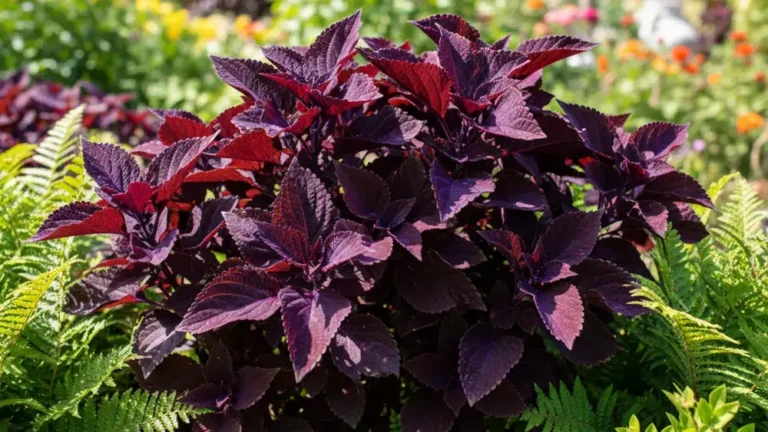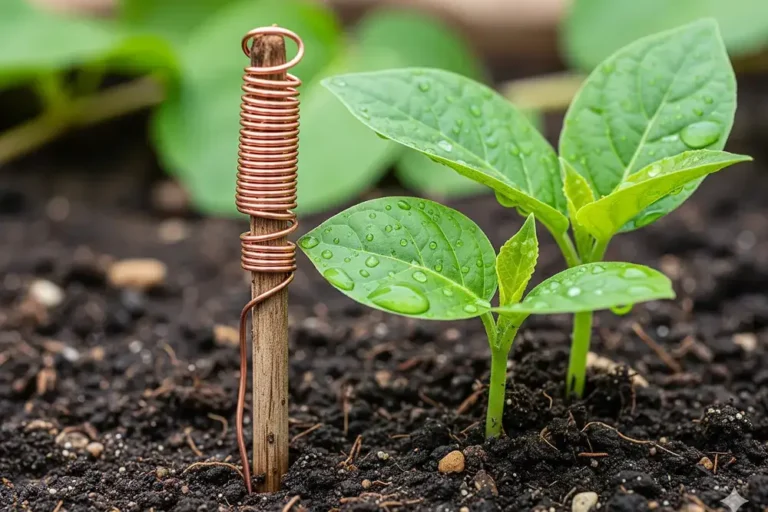Best Brussel Sprout Companion Plants for Growth
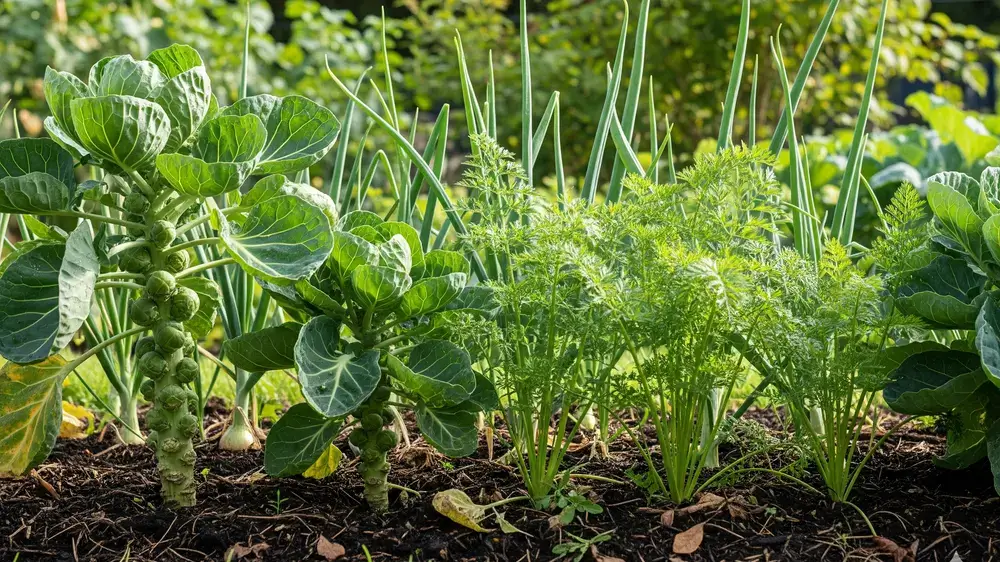
Brussel sprouts can be a bit tricky to grow, but when done right, they reward gardeners with nutritious and delicious harvests. If you’ve ever struggled with pests, slow growth, or poor yields, the secret might not be in fertilizers alone but in the company your plants keep. That’s where the magic of companion planting comes in.
In this guide, we’ll explore the best brussel sprout companion plants that help boost growth, deter pests, and make your garden healthier overall. Whether you’re just starting or have been gardening for years, you’ll find practical tips and easy combinations you can try in your own backyard.
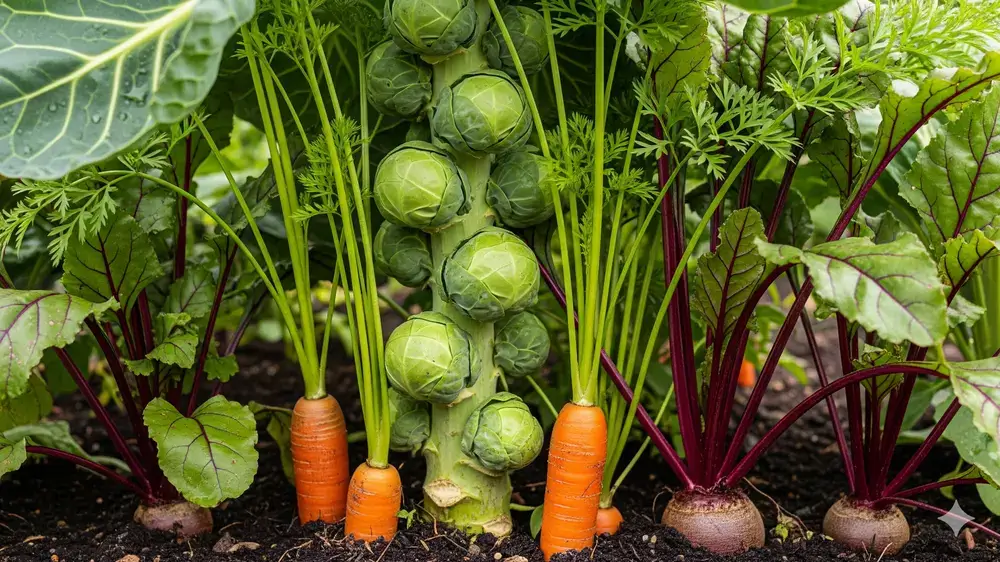
Why Companion Planting Matters for Brussel Sprouts
Brussel sprouts are heavy feeders with long growing seasons. They thrive in cool weather and need nutrient-rich soil to produce those tight little sprouts. Unfortunately, they also attract pests like cabbage worms, aphids, and flea beetles.
Companion planting offers a natural way to handle these challenges. By planting the right herbs, vegetables, and flowers nearby, you can:
- Repel harmful insects
- Attract pollinators and beneficial predators
- Enrich the soil naturally
- Maximize limited garden space
- Improve flavor and overall plant health
Think of it as building a neighborhood where every plant plays a role in keeping others safe and thriving.
Best Brussel Sprout Companion Plants for Growth
Herbs That Protect and Strengthen
Some herbs work wonders when planted near brussel sprouts. Their strong scents confuse pests and keep them from targeting your crops.
- Dill: Attracts beneficial insects like ladybugs and wasps that feast on aphids.
- Sage and Rosemary: Repel cabbage moths and beetles that attack sprouts.
- Thyme: Works well as a ground cover, reducing weeds while also deterring pests.
Tip: Interplant these herbs in between your brussel sprout rows for a natural pest barrier.
Vegetables That Pair Well with Brussel Sprouts
Certain vegetables are excellent partners for brussel sprouts because they either improve soil conditions or make efficient use of space.
- Onions and Garlic: Their pungent smell repels insects like aphids and spider mites.
- Beets and Celery: Improve soil structure and do not compete heavily with sprouts for nutrients.
- Beans and Peas: As legumes, they fix nitrogen in the soil, which brussel sprouts love.
- Carrots and Radishes: Grow quickly and can be harvested before brussel sprouts need the extra room.
These vegetables not only help sprouts grow but also give you a more diverse harvest from the same garden bed.
Flowers That Benefit Brussel Sprouts
Flowers are more than just pretty faces in the garden. Some of them actively protect your vegetables.
- Marigolds: Famous for repelling nematodes and harmful beetles.
- Nasturtiums: Act as a “trap crop” by attracting aphids and cabbage worms away from your brussel sprouts.
- Calendula: Draws in pollinators and beneficial insects like hoverflies.
Planting these flowers along the edges of your garden bed adds both beauty and natural protection.
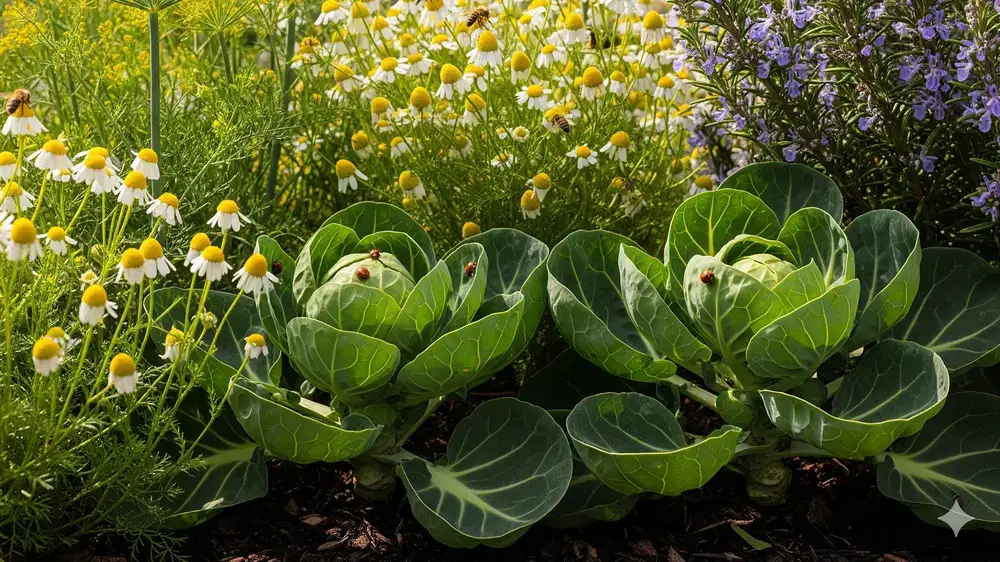
Plants to Avoid Around Brussel Sprouts
Not every plant is a good neighbor. Some can compete for nutrients or attract the same pests, leading to poor growth.
- Other Brassicas: Avoid cabbage, broccoli, and kale near brussel sprouts. They share pests and diseases.
- Strawberries: Known to stunt the growth of brussel sprouts when planted nearby.
- Tomatoes and Peppers: Their bushy growth limits airflow and creates humid conditions that encourage fungal problems.
It’s just as important to avoid bad companions as it is to choose good ones.
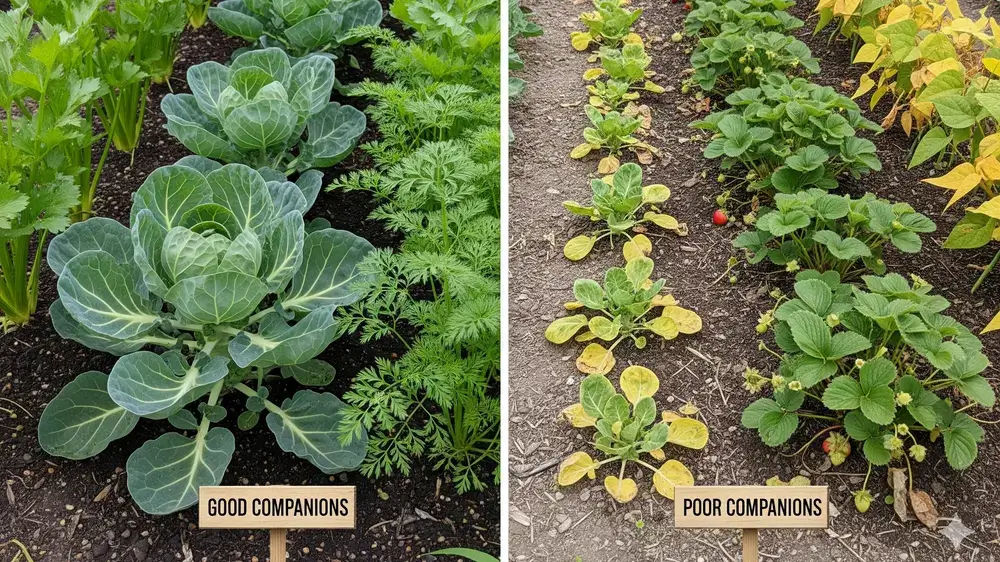
Practical Tips for Companion Planting with Brussel Sprouts
- Rotate Crops: Don’t plant brussel sprouts or other brassicas in the same spot every year. This helps prevent soil-borne diseases.
- Keep Spacing in Mind: Brussel sprouts need room to breathe. Allow proper airflow to reduce the risk of mildew.
- Use Mulch: Mulching helps retain soil moisture, prevents weeds, and creates a healthier environment for both sprouts and their companions.
- Plan a Layout: For example, place beans on one side of your sprouts, herbs in between rows, and flowers on the outer border.
Imagine a raised bed where brussel sprouts stand tall, herbs fill the gaps, and colorful flowers create a protective ring. It’s efficient, productive, and beautiful.
Common Mistakes to Avoid
Many gardeners get excited about companion planting but fall into these traps:
- Planting too many brassicas together, which leads to shared pest problems.
- Overcrowding, which reduces airflow and stunts growth.
- Ignoring soil quality, assuming companion plants will fix everything.
- Forgetting to observe and adjust. Every garden is unique, so monitor how plants interact.
Actionable Gardening Tips for Beginners
If you’re new to gardening, here’s how to get started with companion planting for brussel sprouts:
- Start small with just two or three companion plants.
- Keep notes in a garden journal about which plants thrive together.
- Experiment with seasonal companions—try marigolds in spring and switch to nasturtiums in summer.
- Combine companion planting with organic pest control methods for the best results.
Gardening is as much about observation as it is about planting. The more you experiment, the better your results will be.
Conclusion
Companion planting is one of the simplest and most effective ways to grow healthier brussel sprouts. By choosing the right brussel sprout companion plants—like herbs, vegetables, and flowers—you can create a thriving garden ecosystem that naturally deters pests and boosts yields.
Start small, observe what works in your space, and enjoy the rewards of stronger plants and bigger harvests. If you’ve had success with companion planting, share your favorite combinations in the comments to inspire other gardeners.
FAQs About Brussel Sprout Companion Plants
1. What are the best brussel sprout companion plants?
The best brussel sprout companion plants include carrots, onions, beets, celery, and herbs like dill and chamomile. These plants help repel pests, improve soil health, and maximize space in your garden. By surrounding brussel sprouts with supportive companions, you create a healthier environment that boosts growth and leads to a more abundant harvest.
2. Can I plant brussel sprouts with tomatoes?
It’s not recommended to grow brussel sprouts with tomatoes. These two plants compete for nutrients and can attract similar pests, which may harm both crops. Instead, focus on brussel sprout companion plants like spinach, beets, or onions that don’t stress the soil in the same way. This ensures healthier growth and reduces the risk of disease or infestation.
3. Do herbs make good brussel sprout companion plants?
Yes, herbs are excellent brussel sprout companion plants. Dill, chamomile, rosemary, and mint not only repel pests like aphids and cabbage worms but also attract pollinators. Chamomile, for example, can enhance the flavor of brussel sprouts, while dill encourages beneficial insects like ladybugs. Planting herbs nearby makes your garden both productive and fragrant.
4. What should I avoid planting near brussel sprouts?
Avoid planting strawberries, beans, and other brassicas like cabbage or cauliflower next to brussel sprouts. These plants compete heavily for nutrients or attract pests that specifically target the brassica family. Instead, stick with tried-and-true brussel sprout companion plants such as carrots, onions, and celery to promote healthier growth and fewer pest problems.
5. How do brussel sprout companion plants help with pest control?
Brussel sprout companion plants work by either repelling harmful insects or attracting beneficial ones. For instance, onions deter cabbage worms, while dill attracts ladybugs that feed on aphids. This natural pest control method reduces the need for chemical sprays and keeps your garden more balanced. Companion planting creates a self-sustaining ecosystem around your brussel sprouts.

